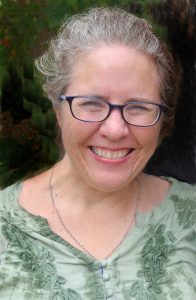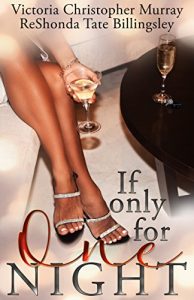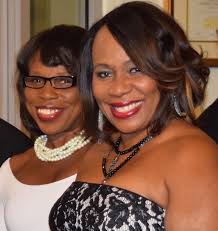Category Archives: Non-Fiction
Commitment
The dictionary defines commitment as “the state or quality of being dedicated to a cause, activity, etc.”
Through the course of my life, I’ve had trouble committing to things and sticking with losing weight, exercising, writing a book and a host of other things.

Which is why I was petrified when I got married again and became pregnant at 37. Once I crossed over the threshold into motherhood, I signed on to the scariest and biggest commitment of my life. I knew things would change and I was right because it’s been sixteen years now since my free spirit took a back seat.
I would be lying if I told you it’s been easy or that there haven’t been days I wanted to quit. Marriage is hard, parenting is even harder, but raising children with special needs is beyond difficult. Yet and still, I couldn’t imagine life without them. My love supersedes everything and compels me to keep going.
That’s not to say, I don’t miss the years I’ve flitted around like a hummingbird. But I’ve realized that commitment was exactly what I needed most because it forced me to grow up. I’ve since learned that avoiding commitment or responsibility only keeps us stuck, stagnant and stunts our growth and maturity in life and relationships. So I’d rather wrestle with the struggles and hardships that comes with commitment rather than avoid it and miss out on the opportunity to grow and mature in Christ.
“Let us not be weary in well doing: for in due season we shall reap, if we faint not.” Galatians 6:9
Interview with Andi Cumbo-Floyd

Once again, I am excited to be interviewing one of my mentors, Andi Cumbo-Floyd. It’s been five years since I’ve last interviewed her. I first connected with Andi on Twitter in 2012, and have had the pleasure of following her ever since. She is an amazing writer, editor, coach and much more. If you have not read her blog posts or any of her books, I would highly recommend that you do.
********
1) What are the things you wished you had known when you were finding your way as a writer?
I wish I had known that the better part of a writer’s life is about discipline and perseverance and much less about talent or inspiration or affirmation. I wish I had known that showing up at the page and doing the work would be reward in and of itself and that avoiding that work would weigh far more heavily than the weight of actually doing it.
2) Could you describe your writing process?
Sure. On the days when mothering and editing allow me time to write, I sit down with a book of poetry and a journal. I read one or two poems, and I watch for the line that most stands out to me for whatever reason. Then, I copy over that line into my journal and start writing with that line. Sometimes I write about what the line brings up, and sometimes, I begin working on my work in progress. Either way, these few handwritten pages help me drop into the place of creativity and leave the rest of my world behind for a bit.
Then, I transition over to the computer and write 1,000 words on my work in progress.
3) Has becoming a mother changed the way you write?
The most obvious change is that I have far less time to futz around before getting to work. Since I am my son’s primary caregiver and since I also work full-time, I have to get right down to work when I have time to do the writing, which isn’t every day anymore.
But it’s also made me a little less precious with my words, a little less willing to stay on the surface. I go deep and quickly. Sometimes that means my writing is more raw. Sometimes, it means it takes me more time to find what I really need to say.
4) What is “voice” and how do you develop it? How did you find yours?
Voice is, as I see it, just a fancy way of saying the way a writer sounds on the page. It’s a combination of the way a writer says things – sentence structure, vocabulary, dialect – and also what they say about what topics. I found mine – as I think all writers do – through practice. I wrote, read what I wrote (often out loud), and felt what read as most genuine to who I am. Then, I just kept practicing until more of what I wrote sounded like more of me.
5) How does a writer arrive at knowing what they should write (i.e., non-fiction, fiction) and what genre?
I don’t like the word “should” about most things in life, but particularly about writing. There is no “should” about what a writer writes. It’s all about preference and about what we have to say about things. But there is nothing that any one person should or should not write. There’s only what we want – maybe sometimes need – to write.
6) In your experience, what is the most important aspect in becoming a professional writer?
Discipline and perseverance. Doing the work. That’s it.
7) I find most great authors, which includes you, hold Master’s degrees. Do you believe a writer needs a Bachelor’s and Master’s degree to succeed in writing good stories? If not, why do most great authors go through the process of a college education? What do you believe is the key to becoming a successful writer or author when someone doesn’t have a college degree?
Thanks, Pilar. I got a degree in writing because I needed a credential to teach writing, and I got that credential. . . but more, I learned discipline and to write to a deadline. I learned about critique and writing regularly. I learned how to give and receive criticism. I learned some things about craft, too. But none of those things require a degree. Anyone can learn all of them through writing groups or online communities, through partnerships with other writers, or through a solid, self-imposed discipline toward writing.
And I would say that I don’t know that most authors do get a degree, at least not a degree in writing. Some of us do, but many, many writers I know have no college degree in writing and almost none have graduate degrees in writing. I know a writer who has a chemistry degree and another who works by day as a software developer. A degree isn’t necessary at all. It’s just a construct that helps us learn discipline and some of the tools in a concentrated way.
8) When you mentor and encourage others to write a thousand pages a day, what does that look like? Does journaling count? Or does the writing have to be something specific like working on a short story, novel or memoir?
A 1,000 words a day. (Not a thousand pages. 🙂 ) Shawn Smucker suggested I try that, and it works well for me. For me, 1,000 words is pretty much all I have time for these days. So sometimes those words go toward a blog post, sometimes toward an interview like this one, sometimes toward my work in progress. Billy Coffey suggested that – the discipline of writing 1,000 words of anything a day is key, not necessarily what you write.
9) Do you consider listening to audiobooks reading? Do you believe there is a difference between reading physical books versus electronic or audiobooks for a writer?
I do think listening to audiobooks is reading, a different form of reading but reading nonetheless. The difference is in how we take in the story, but both are really valid ways of accessing stories. In audio, we listen to the way the sentences move on the page, to the trip of language, and while we do some of that when we read on the page, we are also more focused on the visual layout – paragraph length, the shape of the words visually (or via touch if we read in Braille.) Neither is better or worse. They are just different ways of spending time with story.
10) You are an author, blogger, vlogger, editor, farmer, mother, etc. You have successfully achieved and attained so much in your life. What’s next? What are your goals now?
I have been given a lot of gifts in life, and one of my main goals is to steward them well. So that means making my family a priority in a new way now that Milo is with us. But it also means figuring out how to do that and still be responsible to my clients and readers . . . and to myself. I would not be a healthy person if I didn’t write, so one of my main goals is to figure out how to mother and still write.
11) I finished reading your latest book, Love Letters To Writers, and I am now reading Discover Your Writing Self. Both books are wonderful and encouraging. Are you working on anything new?
I am, but I’m not talking about it publicly yet. I’ve found that I need to let my books have some silence around them, especially at the beginning, so I’ll be saying more about that around my spaces in the coming months.
12) What do you enjoy writing more fiction or nonfiction and why?
Oh, I enjoy both, but my heartbeat is in creative nonfiction. There’s just something about wrapping words around an experience or bit of history that gives me energy and flexes my mental and creative muscles. I love that.
Thank you for a great interview, Andi.
********
Andi is a writer, editor, and farmer who lives at the edge of Virginia’s Blue Ridge Mountains with her husband and son, four dogs, three cats, six goats, and thirty-two chickens. She writes regularly about the writing life at andilit.com. You can find her on Facebook, Twitter, Instagram, Pinterest, LinkedIn and Goodreads.
If Only For One Night by Victoria Christopher Murray & ReShonda Tate Billingsley

Publisher: Brown Girls Publishing
Price: $15.00
Purchase: Amazon | BN
Description
Can they be soulmates if they’re married to other people? From the outside, Angelique has the perfect life – a rich husband who adores her and gives her the world, except for what she craves most – his attention. A workaholic, more concerned with his family’s financial situation than emotional stability, Preston doesn’t understand why his wife is so unhappy. Not one to stray, Angelique seeks comfort in the online game, Words With Friends. Blu has been living a life of loneliness since his wife settled into a depression she has no desire to shake. Frustrated and fed up, he loses himself in his favorite game – and the woman that has proven to be a formidable opponent. It’s not long before their online connection turns flirtatious and troubles at home lead them to a face-to-face meeting. And eventually an addictive connection that will have them questioning if they’re truly soulmates or if they were destined for only one night.
***Vlog Review: https://youtu.be/4YfS54ZbnB4***
Review
If Only For One Night was an interesting read. It was entertaining as well as challenging. I love reading fiction that makes you think. This story covers important topics such as marriage, love, soulmates, and mental illness, to name a few.
The story is about two married couples; Angelique and Preston, and Blu and Monica. Angelique loved her husband Preston, but paid more attention to his business than her. Blu loved his wife Angelique, but after having children, she was diagnosed with mental illness which negatively impacted their marriage.
Angelique and Blu were lonely and found solace playing an online game called, “Words With Friends.” It is there that they connected, flirted and eventually met in person.
Many things transpired after their initial meeting which kept you guessing. And, not for nothing, I did not see that ending coming. It was definitely a surprise.
I loved that it is clean fiction, and there is no profanity or graphic scenes. When someone is a good writer, all of that isn’t necessary to get the point across.
I am impressed by how the authors wove this story. The dynamic duo have a mean pen game and exceeded my expectations with, If Only For One Night. I highly recommend it.
Please be sure to click on the above link and check out my vlog review, where I go into more details about the story.
 Between them, National Bestselling and NAACP Award-Winning authors, ReShonda Tate Billingsley and Victoria Christopher Murray have more than two million books in print. The dynamic duo decided to combine their respective talents writing a number of books together, while maintaining their successful solo careers. Victoria, a former successful entrepreneur, also holds an MBA from New York University. ReShonda is a former TV journalist and marketing professional with over 25 years of experience.
Between them, National Bestselling and NAACP Award-Winning authors, ReShonda Tate Billingsley and Victoria Christopher Murray have more than two million books in print. The dynamic duo decided to combine their respective talents writing a number of books together, while maintaining their successful solo careers. Victoria, a former successful entrepreneur, also holds an MBA from New York University. ReShonda is a former TV journalist and marketing professional with over 25 years of experience.